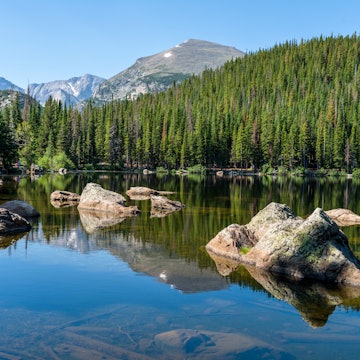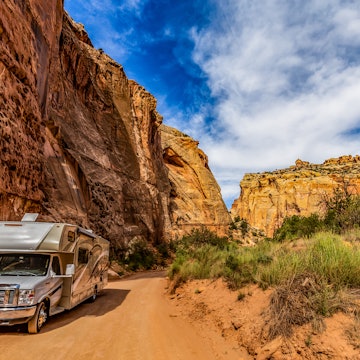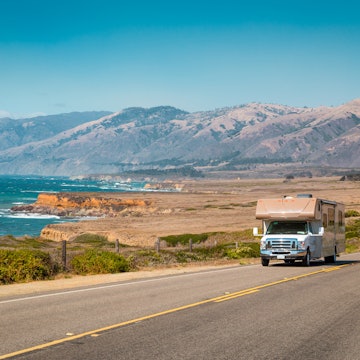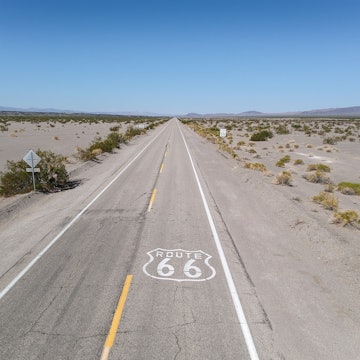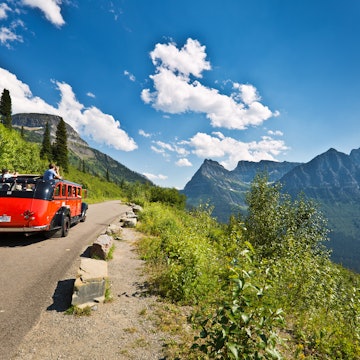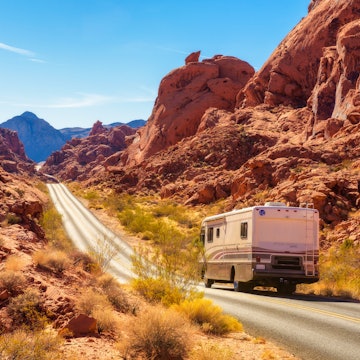

With roads that encircle mountains and navigate red-rock canyons, Utah is a driver's dream © DanielGonzalezPhoto / Shutterstock
Picture Utah and images of red-rock arches and deep canyons will spring to mind. However, the Beehive State adds up to much more than its landmark national parks. Taking a road trip across this ruggedly handsome US state will immerse you in the heart of America, taking in stunning landscapes, famous national parks, friendly small towns and roads that were made for driving.
Since you’ll be passing through one of America's most beautiful states, you can expect an abundance of jaw-dropping views. There are plenty of places to visit and plenty to do wherever you park up. Thankfully, many of the best vistas can be accessed via paved highways and scenic byways with plentiful roadside viewpoints, with Salt Lake City as a convenient hub.
While most of Utah’s best road trips are accessible in a conventional car, some more rugged routes require an all-wheel-drive crossover or a high-clearance 4x4 vehicle. To really get to know this state, fuel up, roll down the windows and hit the road – here are the best road trips in Utah.
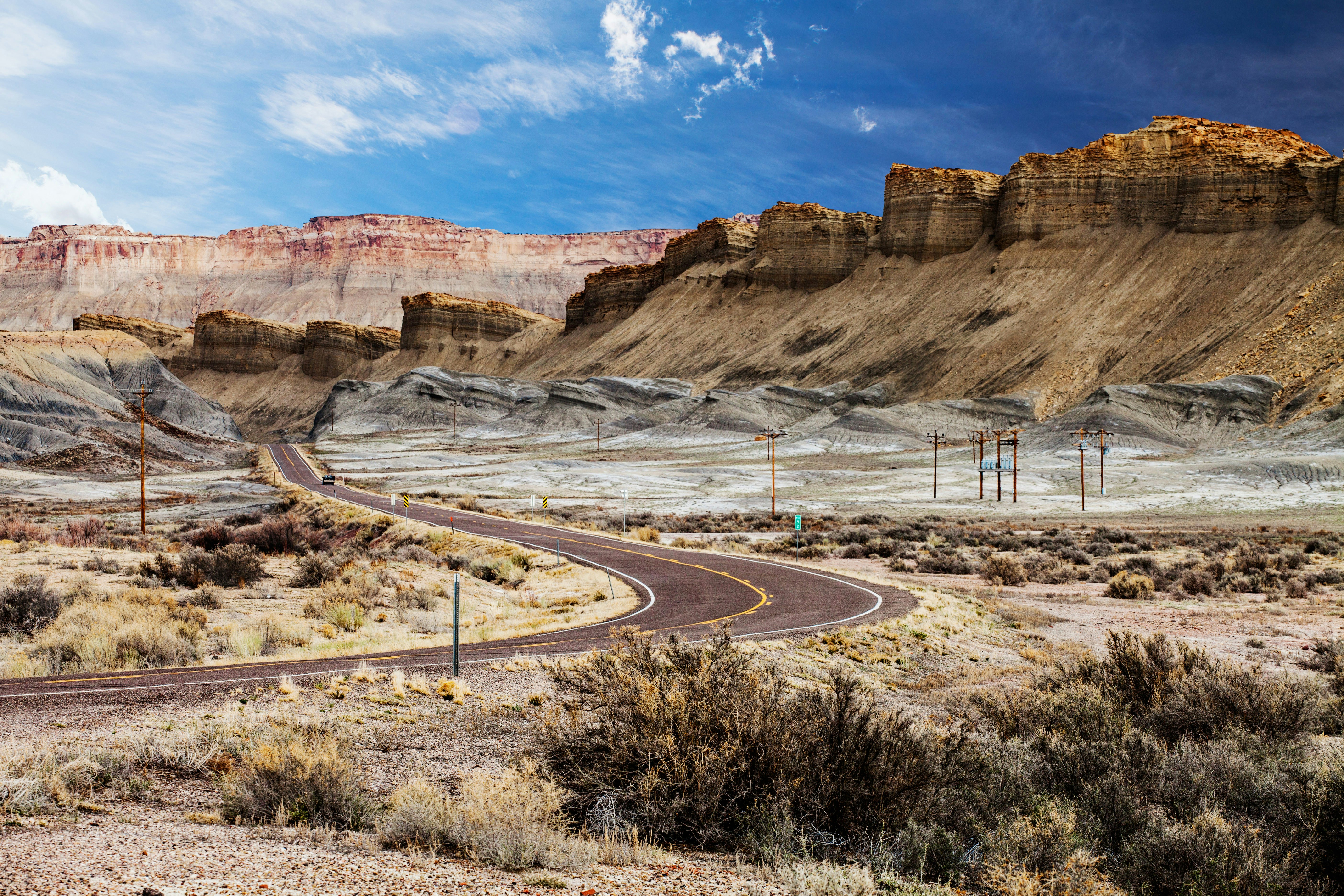
1. Scenic Byway 12
Best for tight itineraries
Panguitch–Torrey; 122 miles; one day
If you take only one road trip in Utah, make it this one. Along this route, linking the towns of Panguitch and Torrey in the national park-filled south of the state, you can experience much of what Utah is famous for in a single afternoon.
Highlights include red-rock tunnels, desert landscapes, nearly two million acres of pinyon pine woodland in Dixie National Forest, a summit overlook from 9000ft, and access to four of Utah’s greatest natural treasures: Zion National Park, Bryce National Park, Grand Staircase-Escalante National Monument, and Capitol Reef National Park.
With plenty of shops and stops along the way, you can easily make a day of it – or even a couple weeks of it, if you stop off to thoroughly explore the parks.
Planning Tip: Most road-trippers begin the route at Panguitch, just north of Bryce Canyon. The nearest air hub is Cedar City Airport, served by Delta Connections flights from Salt Lake City, with car hire firms at the terminal.
2. Dinosaur Diamond Prehistoric Hwy
Best for dinosaur fans
Starting and ending in Vernal; 512 miles; 1–3 days
Utah is covered by deserts today, but millions of years ago, this was part of a coastal floodplain rich in flora and fauna. Evidence of this abundance of life comes in the form of dino footprints and fossils buried in the state’s desert cliffs and rocky outcrops – things visitors can easily seek out today.
For a trip back to prehistory, there’s no better route than Dinosaur Diamond Prehistoric Hwy. Starting and ending in the beautiful town of Vernal, this epic route travels in a diamond shape through Utah and parts of Colorado, following I-70, US 6, US 40, and US 191, among other roads.
The highlight is the legendary fossil quarry at Dinosaur National Monument – where dozens of dinosaur skeletons lie in situ – but the route also takes in Flaming Gorge, Jones Hole, Fantasy Canyon, and Canyonlands and Arches National Parks near Moab.
Planning Tip: It's best to come in spring or autumn to explore the dinosaur sites along the route, as temperatures soar in summer. Vernal is around 175 miles east of Salt Lake City – an easy drive along US 40 and US 191.

3. Monument Valley Hwy 163
Best for cinematic views
Mexican Hat–Monument Valley; 45 miles; half a day
Dozens of movies, including one Academy Award winner, have been shot in Monument Valley in the far south of Utah. With arguably the greatest backdrop in American movie history, this road trip will leave you feeling like a character in Stagecoach or The Searchers.
For the most impressive views, travel southwest from Mexican Hat, taking pictures of the sombrero-shaped rock and “Forrest Gump Point,” then drop into Monument Valley itself for even more surreal photography. Spilling across the state boundary into Arizona, this dramatic collection of towering sandstone buttes is administered by the Navajo Nation.
While you can easily complete the route in under two hours, you’ll want to allow extra time for side trips and scenic detours along connecting byways such as Hwy 276.
Planning Tip: To immerse yourself in movie lore, visit John Ford's Point near The View Hotel – used as a filming location in The Searchers and several other John Ford westerns.
4. Mirror Lake Scenic Hwy
Best for an adventure from Salt Lake City
Kamas–Wyoming border; 42 miles; half a day
Starting an hour from Salt Lake City, the Mirror Lake Hwy is one of the most popular mountain driving routes in the state. Heading east from Kamas, about 45 miles east of Salt Lake, the paved highway takes you through the High Uinta Wilderness, one of the state’s best-kept secrets.
Highlights of this easy adventure include Upper Provo Falls, photogenic Mirror Lake, Bald Mountain Pass and the Christmas Meadows trailhead, as well as numerous overlooks, picnic areas and campsites along the way. It’s also an ideal way to experience the state's fall foliage.
Planning Tip: This is a great route for independent adventurers – camping is permitted in many parts of the High Uinta Wilderness, but be sure to follow Forest Service rules.
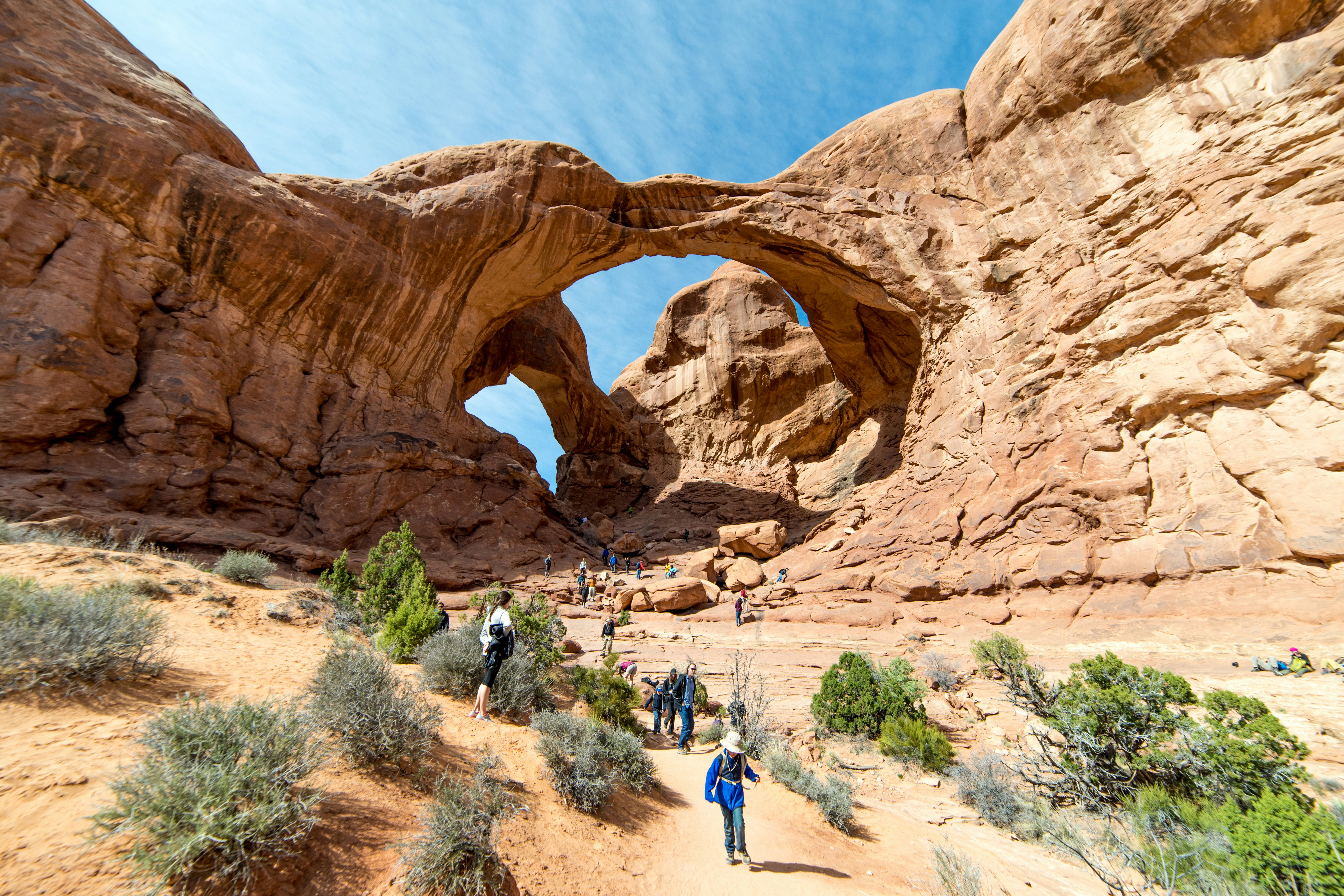
5. Utah’s “Mighty 5”
Best for bucket-list landscapes
Arches National Park–Zion National Park; 1040 miles; 10 days
Few places in the country – if not the world – offer such a high concentration of national parks and national monuments as Southern Utah. And this ultimate route will get you to them all – and then some! To explore, give yourself at least a week to 10 days.
Starting in Moab at Arches National Park, the route works its way east through Canyonlands, Capitol Reef, Bryce and Zion. As there's no single highway linking the parks, it makes sense to tack on other parks and reserves along the way, such as Monument Valley, Goblin Valley State Park and Kodachrome Basin State Park. However you make the trip, you can look forward to admiring the full scope of Utah’s natural wonders.
Planning Tip: Southern Utah's big-name national parks can be very busy from March to October. Come just outside this window in February or November and you'll have a quieter experience; just bring gear for chilly mornings, evenings and nights.
6. Potash to White Rim Rd
Best for dirt-road thrills
Moab–Island in the Sky Visitor Center; 32 miles; half a day
A thrilling dirt road trip from Moab, this is one for adventurers. Check your vehicle's roadworthiness, then drive north from Moab on Hwy 191, turning south on Hwy 279 to snake around the Colorado River – perhaps pausing to hike at Corona Arch or visit nearby rock-climbing cliffs and ancient petroglyph sites.
Next, turn west onto Potash Rd to make your way through Dead Horse Point and into Canyonlands National Park before finally ascending the towering switchbacks of the Shafer Trail to finish up at the Island in the Sky Visitor’s Center. After admiring the views, head back the way you came to return to Moab.
Planning Tip: Although many conventional cars will be capable of handling this dirt drive, a 4x4 or an all-wheel-drive vehicle with higher-than-normal clearance will give you peace of mind when crossing rougher sections of the route.

7. Moki Dugway
Best for exceptional views
Mexican Hat–Natural Bridges National Monument; 34 miles; half a day
This might be one of America's most famed white-knuckle car rides, but the views are life-affirming. With hairpin turns and an elevation gain of over 1000ft, this graded dirt road is best driven north from Mexican Hat (on the north side of Monument Valley) toward Natural Bridges National Monument.
You can look forward to truly exceptional vistas. While at the top, take a detour west to see stunning Muley Point, which overlooks the deep canyons of the San Juan River. Other highlights include the overlook above the Valley of the Gods, with its stunning buttes and stone pinnacles. If you don't plan on exploring further than Natural Bridges, this is also a wonderful out-and-back drive from the Monument Valley area by car.
Planning Tip: The Moki Dugway can be safely driven in a conventional car, but you may feel more comfortable in an all-wheel-drive vehicle or 4x4 if weather conditions are poor.

8. Cathedral Valley Scenic Backway
Best for seclusion
Cathedral Road–Hartnet Road; 72 miles (with detours); half a day
To see the half of Capitol Reef National Park that few people ever visit – and we promise it’s the better half! – you’ll need a 4x4 vehicle with high clearance. The rewards for leaving the asphalt are significant. Expect castle-like sandstone formations, panoramic desert views and rarely another person in sight.
The region’s unique sandstone formations were formed by millions of years of erosion, leaving behind sculpted monoliths striated with the scars of eons of desert winds. For the full experience, camp out under starry skies blissfully free of light pollution. The Earthtrekkers website has a useful route description.
Planning Tip: If you decide to stay in Capitol Reef National Park, you can reserve a space at the Fruita Campground (from March to October) or camp at the park's two free primitive campgrounds, where you'll need to bring everything you need, including food and water.









